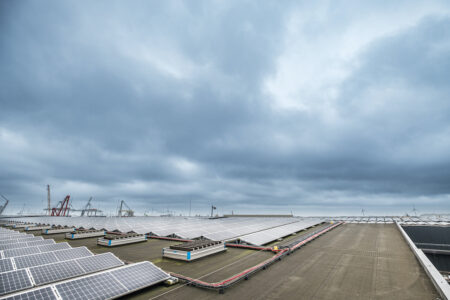Mars renews pledge to attain net zero greenhouse gas emissions across its operations

Mars has renewed its plans to achieve net zero greenhouse gas (GHG) emissions across its value chain, including confectionery manufacturing operations, through delivering on science based targets addressing key issues by 2050, writes Neill Barston.
The global business confirmed that it intends to align with ambitious aim of the Paris Agreement to limit global temperature rises to 1.5 °C.
As previously reported by Confectionery Production, its latest drive follows a series of measures undertaken by the business as part of the initiative, which was identified last year as particularly critical amid the coronavirus pandemic.
This stepped-up commitment follows findings in the July Intergovernmental Panel on Climate Change (IPCC) report which reinforced the urgency of achieving net zero globally to prevent the worst impacts of global warming – a critical focus of next month’s COP26 Climate Conference in Glasgow.
Mars is joining the Science Based Targets Initiative’s “Business Ambition for 1.5C pledge” and the Race to Zero, as the company accelerates its work to achieve net zero emissions by focusing on a number of core business areas.
This includes delivering absolute emissions reductions across its entire GHG footprint including all scope 3 emissions such as indirect emissions (e.g., business travel, retail customer emissions, use of sold products, and product end-of-life) and setting 5-year milestones to drive action and track progress.
It also aims to eliminate deforestation in its supply chain – particularly in key raw materials that have the greatest impact on emissions. Measures on in regard to this include linking executive pay to delivering GHG value chain emission reduction, and challenging 20,000+ suppliers in the Mars value chain to take climate action and to set meaningful targets.
Mars Chief Executive Officer Grant F. Reid believed the scale of intervention on climate change ‘must be bolder and faster’ “as it is already impacting the planet and people’s lives.
He said: “To mitigate this real and tangible threat, the science tells us net zero targets must be broad in their reach, capturing emissions across the entire value chain and plans need to have material, interim targets. We can’t wait decades to see progress.
“However, all too often, this simply isn’t the case – and the gaps that exist in some net zero commitments risks undermining their credibility, and even more importantly, the climate action movement. We can’t allow that to happen.
“To deliver meaningful impact and ensure it is fit for purpose, our net zero target covers our entire GHG footprint, from how we source materials through to how consumers use our products and, we’re mobilizing our entire business around taking action now and hitting interim targets every five years.
“This is going to be a significant challenge, and it we won’t be able to achieve net zero without the collaboration of our Associates, suppliers, customers, consumers and industry partners. It’s so important that we work together to drive scale and reach.”
Reid added that there was an urgent need to overhaul the supply chains which power global business and put an end to deforestation and the conversion of natural ecosystems to drive meaningful change now, concluding taht “We can’t use long-term ambitions as an excuse for inaction and delay.”
Mars has been driving climate action on emissions for more than a decade with an existing commitment – set in 2009 – to achieve net zero in direct operations by 2040.
Its latest pledge builds on the company’s existing Sustainable in a Generation Plan, advancing its previous pledge to cut emissions in its full value chain by 67% by 2050 and reaffirming an ambitious near-term target to cut GHGs in its full value chain by 27% by 2025.
Since 2015, Mars has cut emissions in its full value chain by 7.3% despite the business continuing to grow. In its direct operations, Mars has already reduced emissions 31% and is on-track to achieve is interim 2025 target (42% reduction).
Reid added: “Our brands play a crucial role in driving progress and especially in connecting this issue with consumers. I’m pleased that we can make this commitment to a more sustainable future for people, pets and the planet.”



